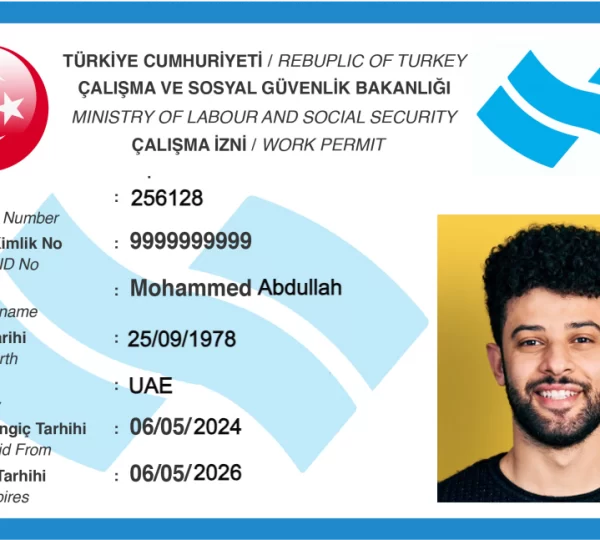
Company Winding Up in Turkey
Company Winding Up in Turkey: Get the Legal Process
Winding up a company in Turkey is a complex yet essential legal procedure undertaken when a business ceases operations. This process, also known as liquidation or dissolution, involves settling all debts, distributing remaining assets, and deregistering the company from the Trade Registry. Understanding the steps and legal framework is crucial for ensuring a smooth and compliant closure. This guide covers the complete process, key considerations, and requirements for company winding up in Turkey.
Table of Contents
What is Company Winding Up in Turkey?
Company winding up refers to the formal process of dissolving a business entity, either voluntarily by the shareholders or compulsorily by a court order. During this procedure, the company stops operating, its assets are liquidated, debts are settled, and any surplus is distributed among shareholders. Once the process is completed, the company is removed from the Turkish Trade Registry and ceases to exist as a legal entity.

Types of Company Liquidation in Turkey
Voluntary Winding Up
This occurs when shareholders decide to dissolve the company, often due to:- Business objectives being completed
- Prolonged financial difficulties
- Shareholder disputes or disagreements
Compulsory Winding Up
This is initiated by a court, usually due to:- Insolvency or inability to pay debts
- Violations of Turkish commercial law
- Failure to comply with regulatory requirements
Key Steps in the Legal Entity Dissolving Process
1. Shareholder Resolution
- In the case of voluntary winding up, the process begins with a General Assembly meeting of the shareholders.
- A formal resolution to dissolve the company must be passed, typically requiring a qualified majority as per the company’s Articles of Association.
- The decision must be notarized and filed with the Trade Registry Office.
2. Appointment of a Liquidator
- A liquidator is appointed by the shareholders to oversee the dissolution process. This person is responsible for:
- Selling the company’s assets
- Settling all outstanding debts
- Filing required documents with the Trade Registry
- In a compulsory winding up, the court appoints the liquidator.
3. Notification of Creditors
- The liquidator is required to notify creditors of the company’s dissolution.
- A public notice must be published in the Turkish Trade Registry Gazette, allowing creditors to make claims.
- The liquidator must ensure that all claims are resolved before finalizing the process.
4. Asset Liquidation
- The company’s assets are sold, and the proceeds are used to settle debts.
- If there are surplus assets after paying off all debts, the remaining amount is distributed among shareholders according to their shareholding ratio.
5. Filing the Liquidation Balance Sheet
- A liquidation balance sheet must be prepared and submitted to the Tax Office and the Trade Registry Office.
- This document details the company’s financial status, showing all assets, liabilities, and the final distribution of funds.
6. Finalizing Tax Obligations
- All tax obligations, including VAT, corporate tax, and other relevant taxes, must be settled before the winding up can be finalized.
- The company must file its final tax return and obtain clearance from the Tax Office.
7. Completion of Liquidation
- Once all debts are settled, assets are liquidated, and tax obligations are cleared, the liquidator submits a final report to the Trade Registry Office.
- The company is then removed from the Trade Registry, officially marking the end of its legal existence.
Timeframe for Winding Down of Legal Entity in Turkey
The timeframe for completing the winding up process varies depending on the complexity of the company’s financial situation, the number of creditors, and the thoroughness of document submission. Typically, it takes between 4 to 6months to finalize the winding up process.
Costs Involved in Company Closing in Turkey
The costs associated with company winding up in Turkey include:
- Notary Fees: For notarizing the General Assembly resolution and other legal documents.
- Trade Registry Fees: Filing and publication fees for notices in the Turkish Trade Registry Gazette.
- Liquidator Fees: If a professional liquidator is appointed, their services will incur a fee.
- Legal and Consultancy Fees: If legal or financial advisors are involved in managing the process.
- Tax Clearance: There may be additional costs associated with obtaining tax clearance from the Tax Office.
Common Reasons for Company Shut Down in Turkey
- Insolvency: When a company is unable to meet its financial obligations.
- Voluntary Exit: When the company has achieved its objectives or the shareholders wish to dissolve the business.
- Regulatory Violations: If the company violates Turkish commercial laws or fails to meet compliance requirements.
- Business Disputes: Shareholder conflicts or deadlocks can lead to a decision to wind up the company.
What Happens After the Company is Wound Up?
Once a company is officially wound up, it no longer exists as a legal entity. The company is removed from the Trade Registry, and it cannot engage in any further business activities. Shareholders receive their portion of the remaining assets (if any), and the company’s records are archived with the Trade Registry for legal purposes.
Contact Us for Company Liquidation in Turkey
Company winding up in Turkey is a structured legal procedure involving several important steps, including shareholder approval, asset liquidation, creditor settlement, and deregistration from the Trade Registry.
Whether voluntary or compulsory, following the correct legal protocols ensures a smooth dissolution and compliance with Turkish commercial law. Engaging legal or financial professionals can help streamline the process and avoid potential pitfalls.
By understanding the requirements and procedures outlined in this guide, business owners can efficiently navigate the winding up process and close their company with minimal complications.
A&M Consulting Co. is a Consulting Company specializing in end-to-end company liquidation, especially for foreign and global companies that want to liquidate their legal entities in Turkey.
We continue to provide cost-effective liquidation solutions to individual businesses and foreign companies operating in Turkey when they want to close their businesses, liquidate their companies and wind up their legal entities smoothly and quickly.
DISCOVER OUR SERVICES:
- Company Registration in Turkey
- Tax Services
- Accounting & Bookeeping Services
- HR & Payroll Services
- Business Consultancy for Turkey
- Social Security Registration
- Turkish Citizenship
- Turkey Work Visa
- Turkiye Tech Visa
- Establishment of Association in Turkey
You can reach out to our experienced consultans via email or by filling out the Contact Form on our website’s contact page.
FAQs About Company Winding Up in Turkey
Winding up refers to the process of dissolving a company, selling its assets, paying off debts, and officially closing it through deregistration with the Trade Registry.
The two main types are voluntary winding up by shareholders and compulsory winding up by court order.
The process typically takes between 6 to 12 months, depending on the complexity of the company’s financial and legal status.
The first step in a voluntary winding up is passing a General Assembly resolution to dissolve the company, followed by the appointment of a liquidator.
The liquidator is responsible for selling assets, settling debts, and handling the legal and financial documentation required to complete the dissolution.
Key documents include the General Assembly resolution, liquidation balance sheet, creditor notifications, and final tax clearance.
Creditors must be notified of the company’s dissolution through a public notice published in the Turkish Trade Registry Gazette.
The company’s assets are sold to pay off debts, and any remaining funds are distributed among shareholders.
Yes, costs include notary fees, Trade Registry filing fees, liquidator fees, and potentially legal/consultancy fees.
No, the company must cease all business activities once the winding up process starts.
All debts must be settled before the company can be officially deregistered. If debts remain unpaid, the company may face legal action or bankruptcy.
Yes, the company must settle all tax liabilities and obtain final tax clearance from the Tax Office before the winding up can be finalized.
Yes, foreign-owned companies can be wound up following the same legal procedures as domestic companies.
In the event of disputes, court intervention may be necessary to resolve conflicts and proceed with the liquidation.
Voluntary winding up is initiated by the company’s shareholders, while compulsory winding up is ordered by a court, usually due to insolvency or legal violations.
The Trade Registry handles the official recording and deregistration of the company once the liquidation process is complete.
Creditors are paid from the proceeds of asset sales, with priority given to secured creditors and government taxes.
Shareholders receive any remaining assets after all debts and obligations are settled.
Failure to follow the correct legal procedures can lead to administrative fines, legal disputes, or bankruptcy proceedings.
Once winding up is finalized, the company is removed from the Trade Registry and ceases to exist as a legal entity.
Recent Posts




